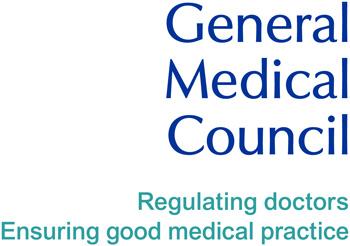While a change in habits can often kick-start a healthier lifestyle, you may want to discover whether there are any underlying issues which may be causing your weight gain, lethargy or low energy levels.
We offer an optional service to have a blood test to test your nutritional levels, thyroid activity and hormone levels. You can order your blood test quickly and easily online here.
The kit will be sent to you in the post. Simply follow the instructions and then post your sample to our lab in the prepaid envelope provided. The lab results are usually available within three days and we will contact you to discuss the results.
Your blood will be tested for:
- Oestradiol
- Pregesterone
- LH
- FSH
- Total testosterone
- Free testosterone
- Prolactin
- Thyroid function
- Liver function
- SHBG
- Renal function
- Lipid screen
- Glucose
- HBA1C
- Iron studies
- BHCG
- Folate
- Magnesium
- Bone profile
- Clotting studies
- Vitamin D
- Vitamin B12
Blood Test Terminology
Oestradiol is a predominantly female hormone found in smaller amounts in men. If high it can lead to similar symptoms to low testosterone.
Progesterone is a hormone produced mainly in the ovaries and plays a key role in pregnancy. It is produced after ovulation in the second half of the menstrual cycle.
Luteneizing Hormone helps regulate the menstrual cycle and egg production (ovulation) in women, and can indicate any issues with the male sperm.
FSH or Follicle Stimulating Hormone is one of the hormones essential to pubertal development and the function of women’s ovaries and men’s testes.
Total testosterone is an indicator of the total amount of testosterone in the blood. If this level is low, you may be suffering from a low sexual libido, reduced muscle mass and strength and a low mood.
Free testosterone indicates the amount of testosterone that is free to be used by the cells in the body.
Prolactin – high prolactin levels in men and women may be linked to low sexual desire and, in men, erectile dysfunction
TFTs or Thyroid function tests check the function of the thyroid. TFTs may be requested if a patient is thought to suffer from hyperthyroidism (overactive thyroid) or hypothyroidism (underactive thyroid), or to monitor the effectiveness of either thyroid-suppression or hormone replacement therapy.
SHBG is a protein made by your liver which binds to your testosterone.
Lipids are a group of fats and fat-like substances that are important constituents of cells and sources of energy. They are necessary for life, but if present in excess they can lead to health problems – in particular cardiovascular disease.
Glucose – your blood sugar levels, also known as blood glucose levels, are a measurement that show how much glucose you have in your blood.
HbA1C or Hemoglobin A1C – Higher levels of HbA1c are found in people with persistently elevated blood sugar which may be an indicator for diabetes.
BHCG or Beta human chorionic gonadotropin (HCG) is a hormone produced by the placenta during pregnancy. A beta HCG test is a blood test used to diagnose pregnancy.
Folate – a deficiency in folate can result in problems with the nervous system, temporary infertility, heart conditions in men and women, and pregnancy complications in women.
Magnesium is mainly found in the bones Abnormal magnesium levels can occur in conditions that affect the functioning of your kidneys or intestines.
A bone profile blood test is used to measure the proteins, minerals and enzymes present in bone and can evaluate problems with the bone.
Vitamin D – people with vitamin D deficiency may be susceptible to respiratory tract infections like colds, bronchitis and pneumonia; experience fatigue, bone and back pain, depression, impaired wound healing, bone weakness, hair loss and muscle pain.
Vitamin B12 – conditions that can increase B12 levels include liver disease (such as cirrhosis or hepatitis), Myeloproliferative disorders (for example, polycythemia vera and chronic myelogenous leukemia). Conditions that can result in a Vitamin B12 deficiency include pernicious anemia, Crohn’s disease, celiac disease, bacterial growth, or a parasite, plus some immune system disorders.


